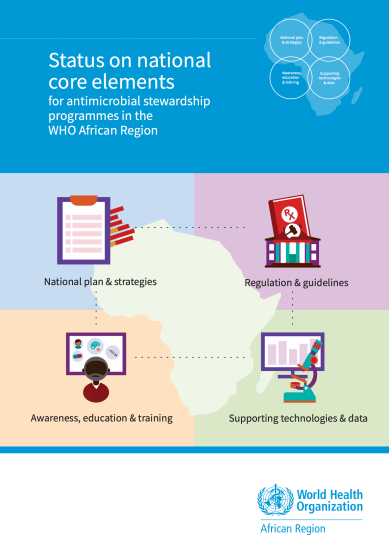
Status on national core elements for antimicrobial stewardship programmes in the WHO African Region
Antimicrobial resistance (AMR) is one of the world’s top 10 public health threats. The World Health Organization (WHO) in the African Region, using the Antimicrobial Stewardship assessment tool, has assessed Member States progress on strengthening national capacity need for effective implementation of antimicrobial stewardship interventions to mitigate the threat posed by AMR.
The African Region bears the bulk of the global burden of AMR, which drives up health care costs and the increases the economic burden on families and societies. Ultimately, this puts the achievements of modern medicine at risk when infections can no longer be treated with first-line antibiotics. In 2019, the deaths associated with and those directly attributable to bacterial resistance were estimated around 4.95 million and 1.27 million respectively. Left unchecked, deaths from drug resistant infections will surpass the predicted annual death toll of 10 million by 2050.
The document, entitled Status on national core elements for antimicrobial stewardship programmes in the WHO African Region, provides results from an in-depth review of checklist of national core elements for averting AMR in 31 of the region’s 47 Member States. The document notes significant challenges in areas including funding, policies and plans, governance and training, underscoring the need for more visible government and political leadership to promote responsible use of antimicrobials.


